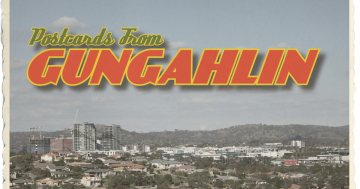
Region Media Group Editor Genevieve Jacob: Don’t swear. Don’t abuse people. Don’t say things that could get us sued for defamation. Photo: Michelle Kroll.
It’s a funny old thing, working for a digital news platform. We meet all sorts, we hear from all sorts and we come up against all sorts of ideas of what the media’s role should be.
One of Region Media’s great strengths is that we actively encourage and manage robust conversations across the whole community in a way that makes us quite unusual.
Sure, you can write a letter to the editor in a newspaper. Radio allows talkback callers and messages via text. But on digital media platforms like ours, we see every single comment from the general public, including quite a few we don’t share with the readers.
It can make for interesting insights into what people think is fit for publication.
There are some simple, straightforward rules around the comments. Don’t swear, even if you stick an exclamation mark in place of the “i” in sh!t. Don’t abuse people, and don’t say things that could get us sued for defamation. We’d rather keep the company operating and everyone in a job so that you can continue commenting.
We won’t let you be racist, and you can’t use our platform to spread dangerous misinformation, although honestly held beliefs, vigorous debates and genuine differences of opinion are absolutely fine by us. But don’t try those anonymous email addresses – if you’re not brave enough to stand by your opinions with your own email address, then we won’t either.
Region Media is a wholly privately owned local company that doesn’t rely on the social media giants or the government for funding, so we make up our own minds about what we want to print. You can read our editorial standards here.
It’s also a great idea to read the article before you comment, especially on social media. We’re pretty familiar with angry questions about something that’s answered in the story’s first paragraph. Most often, other readers, in a more or less kindly manner, point out the bleeding obvious.
But we’re frequently even more puzzled by the comments on our editorials. “How about a bit of balanced reporting?” readers ask. “Pretty biased journalism here!” (usually, this means you don’t agree with the piece’s general direction).
They’re editorials. Opinion pieces. It says so in the green box at the top of the stories. They are not news reporting.

Was Gentleman’s call-in a stunt? Is Zed the worst? It’s a matter of opinion. Image: Region Media.
Here’s a definition: “An editorial is a short essay that shares an individual’s opinion on a current event or social issue. The goal of a good editorial is to persuade the reader to consider your perspective and change their opinion. Editorials often focus on controversial issues with widely different viewpoints.”
Our responsibility in the media is to provide balanced, independent, even-handed news reporting. But the key to understanding why editorials are different is encapsulated in the phrase “widely different viewpoints”. They’re like food or music reviews: nobody expects the restaurant critic to be neutral on whether the steak was overdone.
Opinion pieces might come from an external writer or one of our staff who has something to say, on everything from politics to magpies. Journalists are allowed to have opinions. They should never allow those opinions to interfere with their straight news reporting – but that’s why opinion pieces and editorials exist.
They are discussion starters, places for ideas and arguments, for passionate conversations and widely differing viewpoints (just like your comments).
Please think before you comment, especially if you’re about to accuse someone of bias (although most old-time journos are familiar with accusations they’ve favoured one political side or the other – often in the same piece of reporting).
Canberra is a great place for opinions and most of us have plenty to say. Let’s do it in a way that genuinely furthers the debate because enabling vigorous discussions and differing opinions is a keystone of our democracy.




















